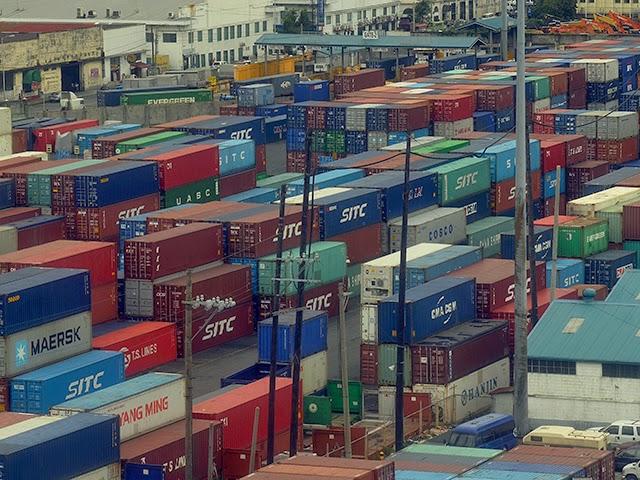PHL trade deficit widens to $2.08B in August

The Philippines’ trade gap widened in August, albeit at a slower pace, as imports continued to outpace exports during the period, data released by the Philippine Statistics Authority (PSA) showed.
The balance of trade in goods, the difference between the value of exports and imports, posted a deficit of $2.075 billion.
This is wider than the $1.859-billion deficit recorded in July, but narrower than the $3.004-billion shortfall posted in August 2019.
A deficit indicates that the value of a country’s imports exceeded export receipts, while a surplus indicates more export shipments than imports.
Broken down, exports stood at $5.128 billion, 18.6% lower than $6.302 billion year-on-year.
Imports, meanwhile, totaled $7.204 billion, down 22.6% from $9.307 billion a year earlier.
The country’s total external trade in goods in August, which amounted to $12.33 billion, declined at an annual rate of 21%.
This is higher than July’s month’s annual drop of 18.1%, and -2.6% decline in August 2019.
In a statement on Saturday, the National Economic and Development Authority (NEDA) said gradual and calibrated re-opening of the economy, as well as regulatory reforms and technological innovations, are needed for the country’s trade and overall economic recovery.
The NEDA attributed the merchandise trade performance’s sharp contraction in August “to the stricter quarantine measures implemented during the reporting period.”
To recall, from August 4 to 18, Metro Manila, Bulacan, Cavite, Laguna, and Rizal were reverted to modified enhanced community quarantine in response to rising COVID-19 cases.
As a result, the trade performance reversed after three months of showing gradual signs of recovery, the NEDA noted.
“The August trade performance is a clear indication that gains from reopening the economy can easily be reversed when we impose strict lockdowns that restrict economic activity. We need to keep this in mind if we wish to regain our growth trajectory,” Acting Socioeconomic Planning Secretary Karl Kendrick Chua said.
“The government will continue its efforts to gradually open the economy and ensure the availability of more and safer public transportation, in tandem with strict observance of health protocols. We also need to facilitate trade and improve our export competitiveness,” Chua said.
“Programs focused on streamlining, reviewing of regulations, and using technological innovations, including digitalization would also be vital in keeping the economy on track,” the NEDA chief added.
Recently, the Bureau of Customs (BOC) rolled out a web-based Electronic Tracking of Containerized Cargo (E-TRACC) system, which tracks inland movement of containerized cargoes during transit.
The BOC also initiated measures under the customs modernization program, including the automation of frontline transactions with the rollout of the Trade Engine – a system designed to improve accuracy of recording and valuation of shipments.
Chua said efforts to facilitate trade needs to be complemented with continued efforts to our investment regime.
“For the Philippines to be seen as a suitable destination for foreign direct investment, it is crucial for us to implement structural reforms that will make the country an attractive investment destination,” he said.
NEDA continues to pursue the enactment of legislations that will provide a competitive and productive environment for businesses through amendments to the Foreign Investment Act, Retail Trade Liberalization Act and the Public Service Act. -MDM, GMA News



